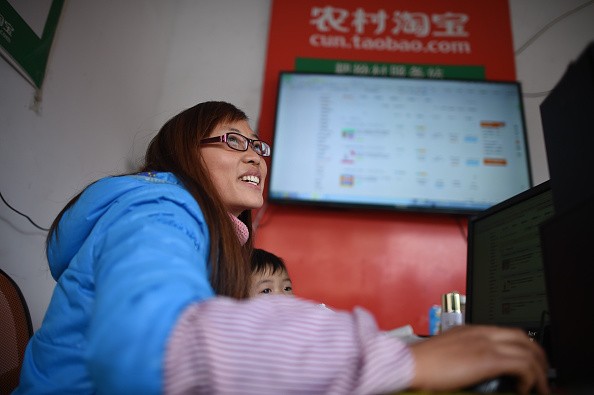Chinese e-commerce giants Alibaba Group Holding Ltd and JD.com are battling to attract consumers from the countryside, as rural e-commerce is expected to be worth 1 trillion yuan ($148 billion) by 2020, an article by technologynewschina.com said.
According to the report, consumers from places outside the megacities of Beijing, Shanghai and Chongqing, are the targets of Alibaba and JD.com, especially for events such as the Singles' Day, the biggest online shopping event of the year.
There are about 618 million people living in China's countryside which have once become the source of labor for factories in the city. But now, as incomes rise and education has improved, Chinese tech firms such as Alibaba and JD.com, as well as smartphone brands Vivo and Oppo, are reaching out to consumers in far-flung provinces, who have money to spend through online shopping.
Alibaba has reportedly spent at least 10 billion yuan in the rural areas to facilitate orders of their customers and send the deliveries to them.
Meanwhile, JD.com is trying to adapt to its rival and has established its present in about 90 percent of the nation's counties and districts, the company said. It has also built new warehouses and about 2,000 regional sorting centers with an army of drivers and other workers to ensure full deliveries.
"We have somewhere around 200,000 agents and representatives in rural areas," Shen Haoyu, president of JD's international business, said. "They help people to place orders and in certain circumstances they help with the delivery as well."
The cost of living in the countryside is lower compared to that in the urban areas hence people in rural areas have more money to spend. From 2004 to 2014, the disposable income in rural towns increased by about 160 percent, which lifted people out of poverty and pusjed the government's effort for domestic consumption.
"Rural populations, especially the young rural population, are not what we knew before," Wang Feng, a professor of sociology at the University of California at Irvine, said. "They are the best-ever educated rural youth in Chinese history. Their parents--as migrants or farmers--worked hard, and then they gave the young people the capacity and resources to be able to consume."



























